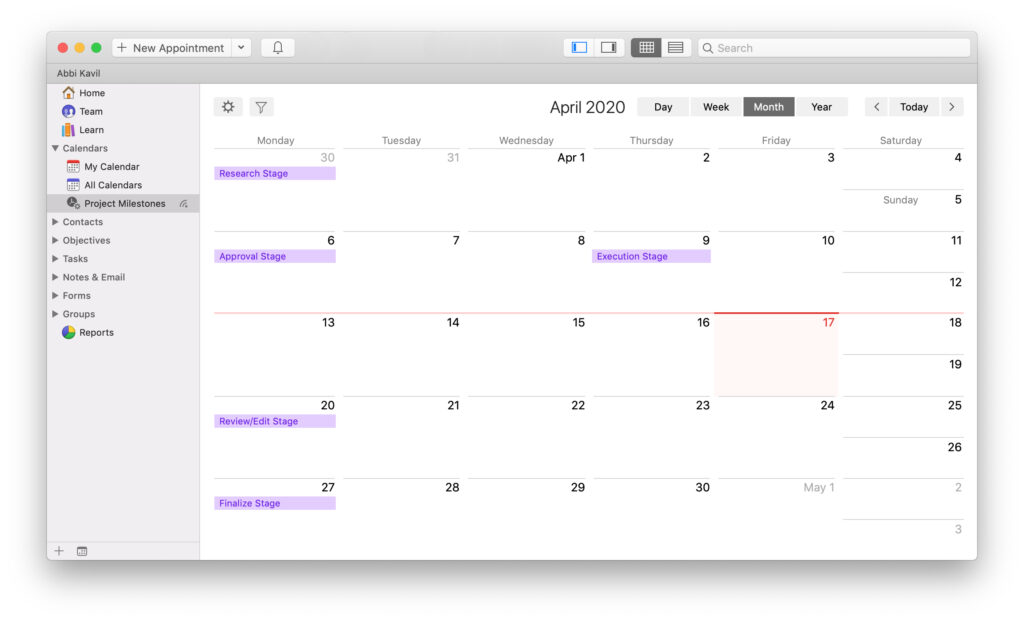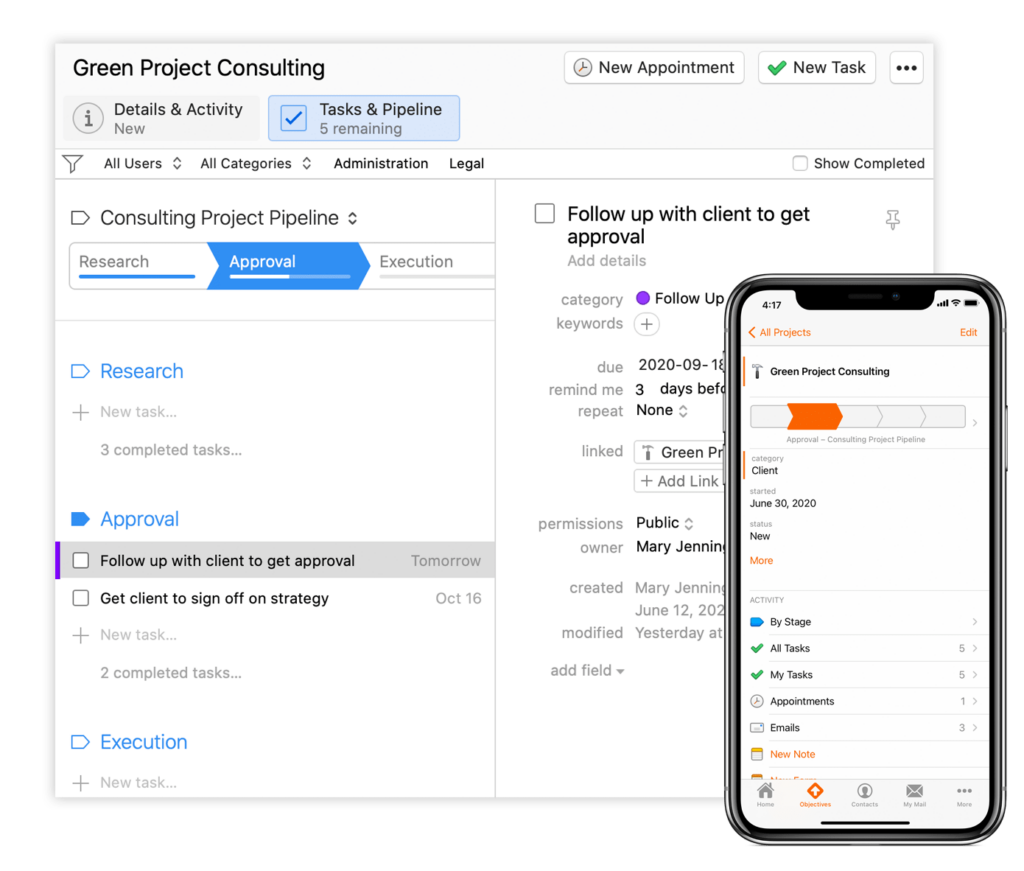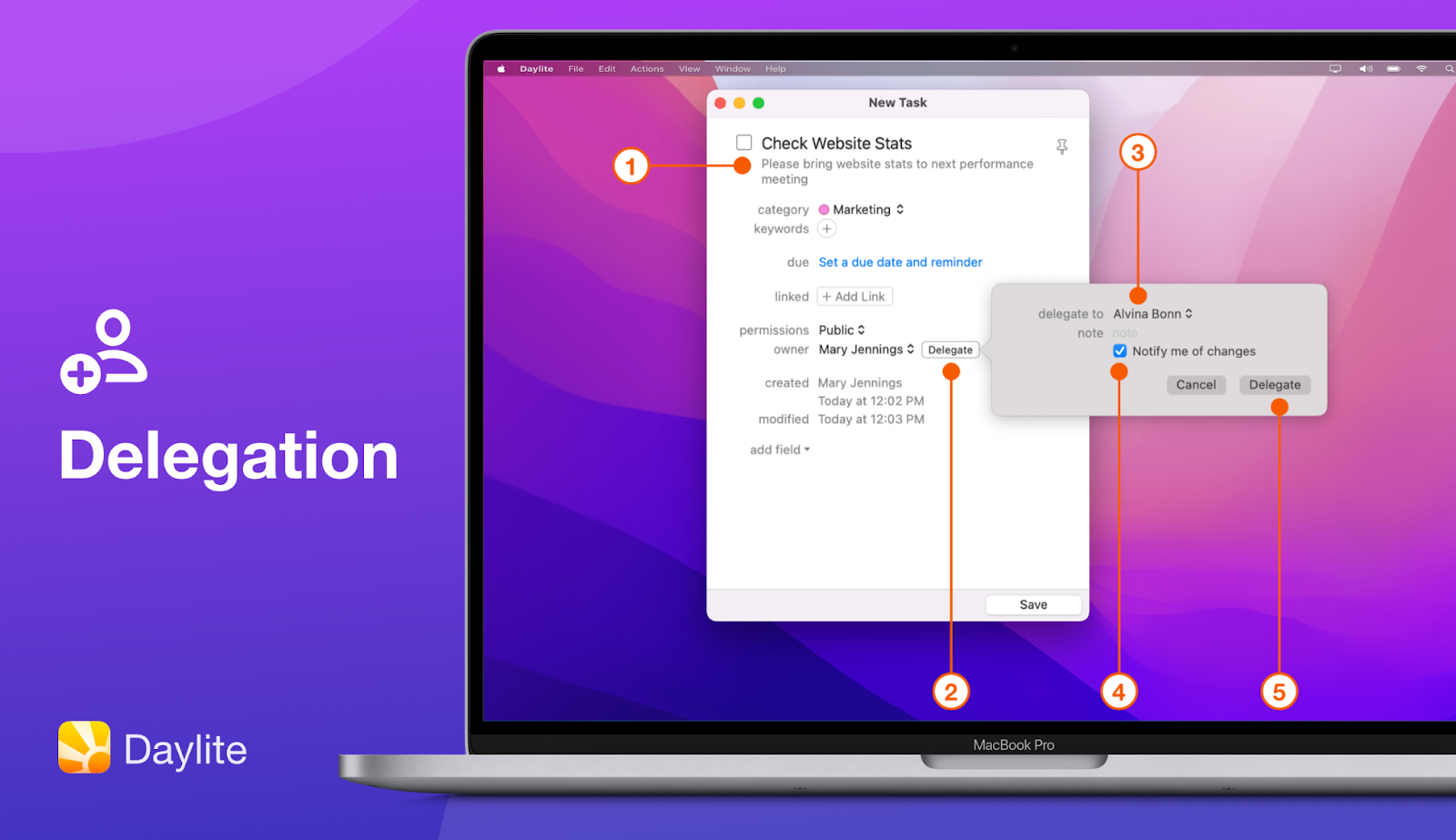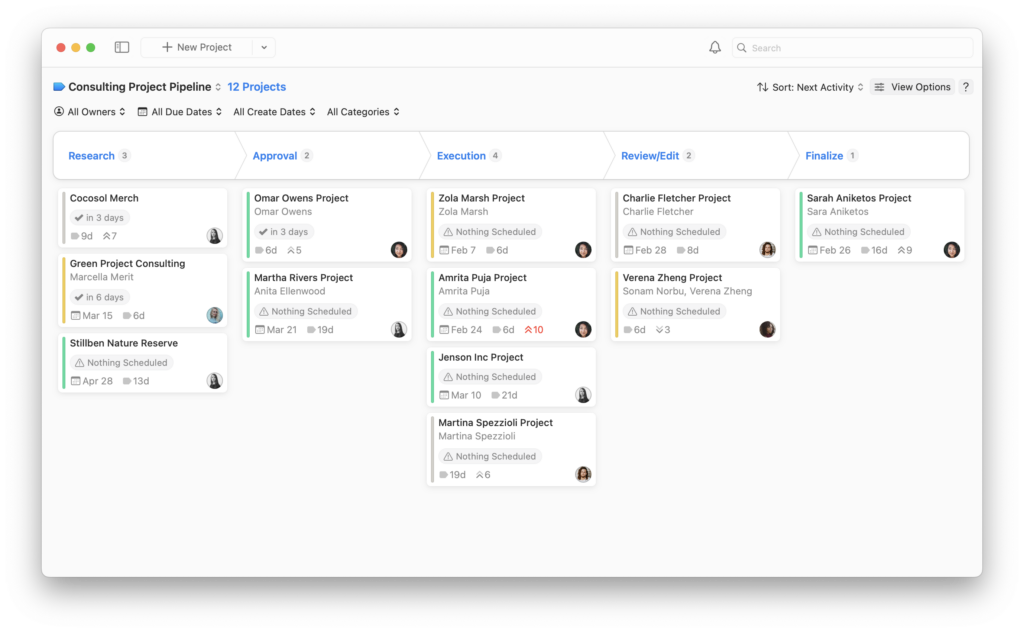Effective project management is the cornerstone of any thriving small business. It ensures that your ideas and commitments are translated into action, your goals become realities, and your resources are optimized for maximum impact. But for many small business owners, the world of project management can feel overwhelming.
Project management is a compass that guides small business owners through the often turbulent seas of entrepreneurship, ensuring that projects are completed on time, within budget, and with optimal resource allocation, ultimately achieving maximum success.
In this blog, we will guide you through all areas of project management in the small business setting, broken down into two parts. The first part discusses the fundamentals of project management, giving you an overview of the basics, while the second part dives deep into each component of project management and how they give your small business a competitive advantage.
Keep reading to see expert insights on how business software like Daylite can make project management a breeze so you can focus on growing your business.

Part 1: The Fundamentals of Project Management
- What Is Project Management?
- Glossary: Demystifying Project Management for Small Businesses
- The Four Fundamental Stages of Project Management
Part 2: Key Components of Project Management for Small Businesses
- Deliverables in Project Management
- Milestones in Project Management
- Project Timeline
- Assigning Task Ownership
- Monitoring Milestones
- Project Completion
- Project Management Tools
- Wrapping Up
What Is Project Management?
Project management is a multi-faceted process that involves the planning, organization, and oversight of a company’s resources and processes toward accomplishing a specific task or goal. At its core, project management is about taking grand aspirations and breaking them down into manageable components, carefully orchestrating and monitoring each step to reach a predetermined completion date.
Small businesses that embrace effective project management benefit from enhanced efficiency, increased accountability, and improved team collaboration. This approach serves as a compass for improved time management, facilitating more informed decision-making and bolstering overall productivity. Every task, from the most significant project to the smallest daily operation, is seamlessly integrated into a structured project plan that ensures resources are properly allocated, leading to heightened efficiency and, in turn, culminating in services that are not only delivered on time but with supreme quality.
In addition, with project management, risks are minimized as you can anticipate and address potential roadblocks in advance, making your business operations more resilient and agile in the face of challenges. In an ever-competitive landscape, small businesses can’t afford to overlook the power of project management, as it paves the way for growth, innovation, and sustained success.
Pro Tip: Daylite is a game-changer for small business owners who want to excel at project management. Thanks to features like Projects Board, task management, contact management, and communication tracking, Daylite makes project management a breeze for small business owners.
Glossary: Demystifying Project Management for Small Businesses
As a small business owner looking to navigate the realm of successful project execution, understanding the language is key to making informed decisions, fostering collaboration, and ensuring project success.
In this section, we’ll demystify the terminology and break down common project management terms to help you decipher the language and manage your projects with confidence.
- Project Scope: The project scope defines the specific boundaries and objectives of a given project, outlining what needs to be accomplished and what is expected. It serves as a roadmap, setting clear parameters to guide you, your team, and the stakeholders throughout the course of the project. Defining the scope ensures you stay focused on what really matters, and prevents distractions from creeping in.
- Deliverables: The tangible results or products that are generated or achieved at specific milestones (a significant point or event in the project timeline that marks progress) or upon project completion. They serve as a way to measure progress and ensure that the project is on track.
- Task Breakdown: A strategic process that involves breaking down the overall project into smaller, more manageable tasks or activities. It helps create a detailed checklist, facilitates a clear understanding of the necessary steps, and improves the organization and efficiency of project execution.
- Stakeholders: Individuals or groups who have a significant interest in the project’s success. They can be team members, clients, suppliers, or anyone impacted by the project outcomes.
- Milestones: A key point or event in the project timeline that marks progress, like a key accomplishment or a decision point. Milestones are used to track and evaluate the project’s progress and to signify important moments in its lifecycle.
- Road Blocks and Implications: The process of identifying, assessing, and mitigating potential challenges and threats that could impact the project’s success and ensuring that proactive measures are in place to enhance the likelihood of success.
- Resource Allocation: The process of strategically assigning and distributing time, budget, and staff to specific tasks and activities within a project, aiming to optimize efficiency. Resource allocation is important to ensure you have the support you need to get the project done.
- KPI (Key Performance Indicator): Metrics that are used to measure the success of a project by tracking and assessing specific aspects such as progress, efficiency, quality, and timelines, providing data for performance measurement and decision-making.
- Closure Report: A comprehensive document that summarizes the overall project performance, outcomes, lessons learned, and any outstanding activities, providing a formal conclusion to the project and serving as a valuable reference for future projects. The closure report is also helpful for improving the process of project management.
Understanding these terms can help you navigate the world of project management for small businesses and effectively communicate with your stakeholders, ensuring a clear and shared understanding of project goals, timelines, and deliverables.
The Four Fundamental Stages of Project Management
The project management lifecycle consists of four distinct phases, each serving a crucial role in the successful execution of a project:
- Initiation – It’s the phase where the project’s feasibility and viability are assessed and objectives are defined.
- Planning – Involves detailed strategizing, scheduling, budgeting, and resource allocation.
- Execution – This is where the actual work occurs, with the team putting the project plan into action, monitoring progress, and making necessary adjustments.
- Completion – It’s where the deliverables are verified, and the project is formally completed, documenting lessons learned for future reference.
When executed meticulously, these four phases ensure that projects are completed on time and within budget to the satisfaction of all stakeholders.
To successfully navigate project management for small business terrain, it’s crucial to delve into its key phases, including understanding basic concepts such as deliverables and milestones. We will now explore a comprehensive overview of each of these stages, highlighting their significance.
Initiation: Defining Objectives
Effective project management needs to start somewhere. The first step involves defining clear objectives for the team with additional expectations for individual participation. Your goals could be a financial achievement, executing a certain project for a special client, or generating repeated business.
By establishing clear and specific goals, small business owners can ensure that everyone involved understands the project’s purpose and can work collaboratively to achieve them. These objectives not only provide a roadmap for decision-making and resource allocation but also enable effective measurement of progress and success. Whether expanding a client’s product into a new market, launching a client’s website, or revamping a client’s processes, well-defined objectives are the vital starting point that lets you stay focused and on track throughout the project lifecycle.
The SMART strategy in project management is well known for its effectiveness in defining objectives. Basically, it consists of ensuring that your project’s objectives are SMART:
- Specific
- Measurable
- Achievable
- Relevant
- Time-bound.
By having SMART goals, you and your team can ensure that your deliverables are on time and according to plan.
Planning: A Blueprint for Success
The planning stage of project management for small businesses is the crucial phase that sets the framework for the entire project and establishes the path toward completion. It involves outlining the specific tasks, goals, deliverables, and milestones expected, providing a roadmap for the project’s success.
This is where you develop an action plan to ensure the project stays focused on its intended outcomes. By clearly defining what needs to be accomplished and the specific steps to get there, the planning stage reduces the likelihood of misunderstandings and sets the stage for more effective decision-making throughout the project.
It is also in the planning stage that you identify and mitigate risks, formulating strategies to address them early on in the project timeline. Additionally, the planning stage facilitates thoughtful resource allocation. Whether it’s your team’s time, budget, or other resources, the planning stage is your strategic blueprint, guiding your business toward project success.
Execution: Getting to Work
The execution stage in project management is where the meticulously crafted plans start transforming into tangible results. This phase is all about putting the well-laid groundwork into action. In this stage, your team is actively engaged in the tasks assigned to them, utilizing the allocated resources and working towards the milestones set during the planning phase.
Communication becomes paramount during this stage to address any issues that may arise and to keep stakeholders informed about the project’s status. Additionally, in the executing stage, you need to monitor the quality of work, make necessary adjustments based on real-time feedback, and stay adaptable in response to unexpected challenges.
Completion: Getting the Project Done
The completion stage in project management is like crossing the finish line—you tie up loose ends, assess the journey and ensure that the project has successfully reached its objectives.
In this stage, you officially finalize and deliver the last deliverables, confirming that all objectives have been met and obtaining the last approvals or sign-offs. It’s also a time to conduct a comprehensive project review, identifying what worked well and areas that could be improved for future projects. The completion stage is also where you ensure that any outstanding documentation or contracts are appropriately concluded.
It’s important to note that the completion stage is not just about administrative tasks; it’s an opportunity to celebrate achievements, acknowledge your team’s efforts, and foster a sense of accomplishment. Additionally, maintaining open communication with stakeholders ensures that everyone is aligned on the project’s closure and that any remaining questions or concerns are addressed.
Finally, the completion stage is also when you document lessons learned. These insights will be invaluable for refining your project management approach in future projects, contributing to the ongoing success of your business.
Pro Tip: Take full advantage of Daylite to streamline project management at every fundamental stage. From defining objectives to the project’s completion, Daylite has what you need to make this process a breeze.
Now that you know the project management fundamentals, it’s time to dive a bit deeper into the dynamics of this fascinating practice that guides small businesses toward success. In this second part, we’ll explore the unique pillars that uphold successful project execution, the unique facets of project management for small businesses and the invaluable role of a project management software like Daylite in streamlining and enhancing your project skills.
Let’s get started!
Deliverables in Project Management
Deliverables in project management are crucial in defining success, representing the concrete outcomes that stakeholders expect from the project. They are the tangible results generated or achieved at significant points or events in the project timeline (milestones) or upon project completion, and serve as a way to measure progress and ensure that the project is on track.
Clear and well-defined deliverables are essential for maintaining project focus and ensuring that everyone involved shares a common understanding of what needs to be achieved.
There are six types of deliverables that can help achieve your project’s goals. These include:
- External: outputs directly addressing customers, clients, or other external stakeholders
- Final: end-goal deliverables for the project
- Intangible: conceptual project outcomes that are measurable, such as new social media followers
- Internal: deliverables produced for the internal team of managers, leaders, departments, or employees
- Process: smaller outputs throughout the process that support the final goal
- Tangible: specific digital or physical objects produced by the project
Deliverables are unique to your business and your industry. In the financial services industry, for example, they could include a budget report or successfully onboarding a client. Marketing deliverables may contain strategy blueprints, performance recaps, paid media campaign reports, or social media engagement.
Pro tip: Managing and keeping track of deliverables is a delicate process that requires constant monitoring of progress and clear communication among team members. That’s why you should rely on a robust business app like Daylite to centralize relevant information to the project, track communications between stakeholders, and have an at-a-glance overview of your projects with real-time updates on the status of deliverables. Learn more about Daylite for project management and discover a realm of game-changing features that will transform your projects.
Milestones in Project Management
Unlike deliverables, milestones are not tangible outcomes themselves. Instead, they are markers that indicate when specific deliverables are due, important decisions need to be made, or critical phases of the project have been completed. For example, milestones could include the end of the quarter, the beginning of a new season, or a holiday.
Milestones help project teams and stakeholders stay aligned on the project’s timeline and goals, as they provide clear reference points and checkpoints throughout the project.

The Daylite Calendar makes it easy for you to create, track, and share project milestones
Pro tip: Read this blog to learn more about tracking project milestones using Daylite when working remotely or collaborating with people from other parts of the world.
Project Timeline
In project management, timeline projections provide a structured visual representation of the project’s schedule, outlining when specific tasks, milestones, and deliverables are expected to be completed. Timeline projections serve as a crucial communication tool, helping you, your team, and other stakeholders align their efforts, manage expectations, and track progress.
By forecasting the sequence of events and allocating time for each task, it’s possible to identify potential bottlenecks, allocate resources efficiently, and ultimately ensure that the project stays on course and meets its objectives within the defined timeframe.

Features like Project Pipelines make Daylite the perfect tool to keep track of a project’s timeline
Monitoring a project timeline is crucial for ensuring that tasks are completed on schedule and the project stays on track. Daylite offers valuable features to facilitate effective timeline monitoring as users can create and visualize timelines, breaking down major tasks into smaller manageable action items with clear deadlines. With Daylite, you can delegate tasks, track team members’ progress, and identify potential bottlenecks, all in one place. And there’s more: Daylite offers a robust calendar that enables you to create and manage appointments alongside the project’s timeline, ensuring that you’re always on top of the project’s milestones. Daylite streamlines the process of monitoring project timelines, enhancing collaboration, and contributing to the overall success of the project.
Assigning Task Ownership
A crucial aspect of project management for small businesses is assigning who will be responsible for what. This practice promotes accountability and evokes each team member’s expertise and strengths and what they can bring to the table. By clearly defining roles and responsibilities, you can streamline the tasks related to the project and enhance efficiency, mitigating risks and reducing the risk of miscommunication as a result.
Task ownership fosters a sense of commitment and pride in their contributions to the project’s success. It’s a fundamental practice that ensures that every aspect of the project is being actively managed and that progress is made consistently, which is particularly valuable in small business settings where resources are often limited, and efficiency is key to achieving success.

Here’s how to delegate a task to a team member in Daylite: 1 – Create a task and add a description or select an existing task; 2 – Click the “Delegate” button; 3 – Select a team member you’d like to delegate the task to; 4 – Check the “Notify me of changes” box to be notified whenever there is a status change; 5 – Click “Delegate”
Monitoring Deliverables and Milestones
Once the planning is done and you and your team start doing the actual work, it is also crucial to keep monitoring the project’s critical checkpoints and tracking progress, ensuring that the project stays on course. This facilitates transparent communication with stakeholders, providing a clear and tangible way to report on the project’s status and success.
Monitoring the project’s progress allows you to assess whether you’re hitting the marks, make necessary adjustments, and swiftly address any unforeseen issues. It also offers a sense of accomplishment and motivation, reinforcing the idea that the project is advancing toward its ultimate objective.
Project Completion
Project completion is the ultimate milestone. It’s the culmination of hard work, strategic planning, collaboration, and monitoring come together to achieve the main goals, bringing the project to its endpoint. During this phase, you must ensure that all project objectives and deliverables have been met and that any loose ends are tied up. It’s a time for thorough quality checks, client approval, and payment.
More than that, the project completion is also an invaluable opportunity to reflect on your performance, identifying what went well and what could be improved in the future. Based on this reflection, not only can you enhance your reputation but also gain valuable experience to apply to upcoming projects, reinforcing your and your team’s commitment to quality and excellence.
Pro tip: Use Daylite to stay on top of project deliverables, tasks, milestones, and communications. Learn more about Daylite for project management.
Project Management Tools
As a small business owner, you may not have the time, energy, or manpower necessary to stay on top of every fundamental aspect of managing your business’ projects. Communication breakdowns can happen, details can fall through the cracks, you can miss important milestones, and everything can fall apart.
Project management tools are indispensable for small businesses as they provide the structure and organization necessary to navigate the complex landscape of projects. And when it comes to project management tools, look no further than Daylite.
How Daylite Makes Project Management a Breeze
Made with small businesses in mind, Daylite is a versatile tool that supports your daily operations as you work toward achieving milestones and growing your business.
Daylite is a game-changer for businesses looking to thrive in the project management realm. It offers features like Projects Board and Pipelines so you can visually track the progress of your projects throughout their lifecycle. Daylite also provides features to stay on top of your project timelines, with a robust calendar that gives you full power over your and your team’s time, helping you stay on top of your project’s timeline and deadlines.

Daylite offers features like Project Board and Pipelines so you can visually track the progress of your projects throughout their lifecycle
But that’s not all. Daylite stores and organizes all the information you need to successfully plan, execute, and complete a project. From all stakeholders’ information to any communication exchanged between you and your clients, everything is easily accessible in Daylite.
So, if you’re looking for a comprehensive tool tailored for the unique project management needs of a small business, Daylite is exactly what you need.
Wrapping Up
As we conclude this exploration into the world of project management for small businesses, it’s clear that the ability to navigate projects with finesse is not a luxury but a necessity. If you leverage the insights we provided in this blog, we’re certain that you will find in project management a catalyst for growth and sustained success.
And don’t forget to take full advantage of technology to facilitate your project management journey. Like Daylite, the game-changer business software that offers comprehensive project management features such as projects board, pipelines, task management and delegation, linking capabilities, calendar, and communication tracking. Daylite is the ultimate business app that gives you back control of your projects in one place.
About the author: Thanny Schmitz is a seasoned copywriter and content strategist passionate about technology and entrepreneurship. With over a decade of experience, Thanny has been behind insightful articles and blogs that inform and spark meaningful conversations within the ever-evolving spheres of tech and small business success.


